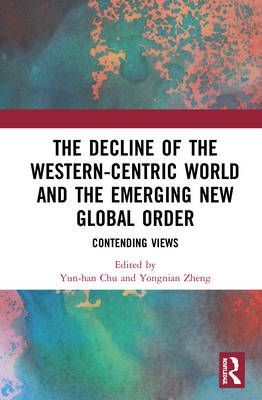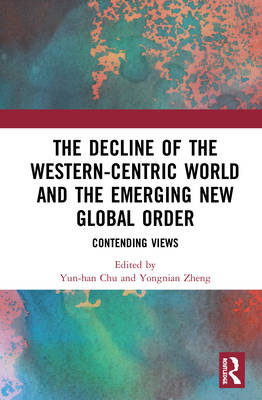
- Afhalen na 1 uur in een winkel met voorraad
- Gratis thuislevering in België vanaf € 30
- Ruim aanbod met 7 miljoen producten
- Afhalen na 1 uur in een winkel met voorraad
- Gratis thuislevering in België vanaf € 30
- Ruim aanbod met 7 miljoen producten
The Decline of the Western-Centric World and the Emerging New Global Order
Contending Views
Omschrijving
The Western liberal democratic world order, which seemingly triumphed following the collapse of communism, is looking increasingly fragile as populists and nationalists take power in the United States, Europe and elsewhere, as the momentum of democratization in developing countries stalls, and as Western liberal establishments fail to deal with economic stagnation, worsening political polarization, social inequality, and migrant crises. At the same time there is a shift of economic power from the West towards Asia. This book explores these critical developments and their consequences for the world order. It considers how far the loss of the West's power to dominate the world order, together with the relative decline of US power and its abdication of its global leadership role, will lead to more conflict, disorder and chaos; and how far non-Western actors, including China, India and the Muslim world, are capable of establishing visionary policy initiatives which reconfigure the paths and rules of economic integration and globalization, and the mechanisms of global governance. The book also assesses the sustainability of the economic rise of China and other non-Western actors, explores the Western liberal democratic order's capacity for resilience, and discusses how far the outlook is pessimistic or optimistic.
Specificaties
Betrokkenen
- Uitgeverij:
Inhoud
- Aantal bladzijden:
- 384
- Taal:
- Engels
- Reeks:
Eigenschappen
- Productcode (EAN):
- 9780367255299
- Verschijningsdatum:
- 25/11/2020
- Uitvoering:
- Hardcover
- Formaat:
- Genaaid
- Afmetingen:
- 157 mm x 236 mm
- Gewicht:
- 657 g

Alleen bij Standaard Boekhandel
Beoordelingen
We publiceren alleen reviews die voldoen aan de voorwaarden voor reviews. Bekijk onze voorwaarden voor reviews.










